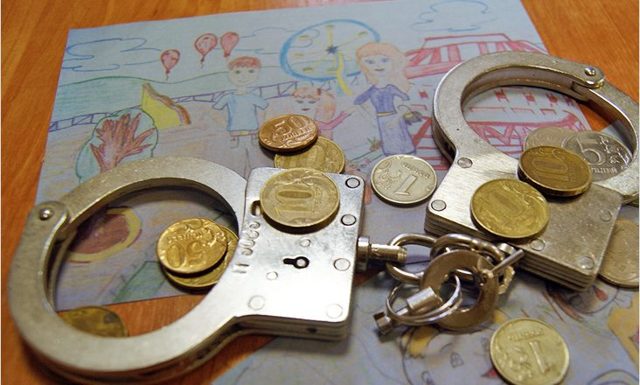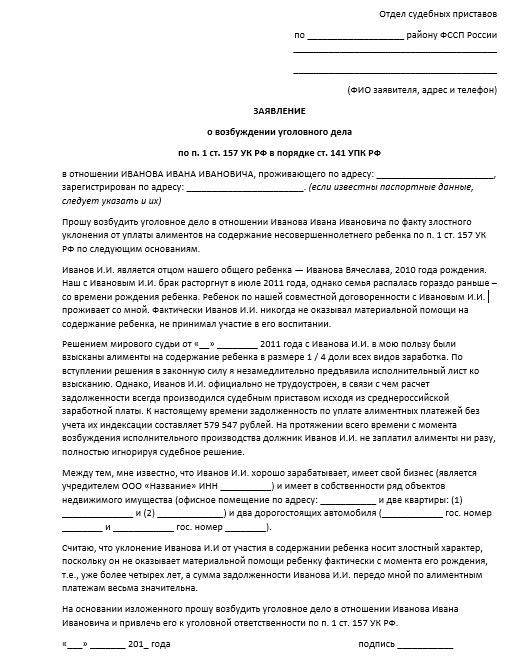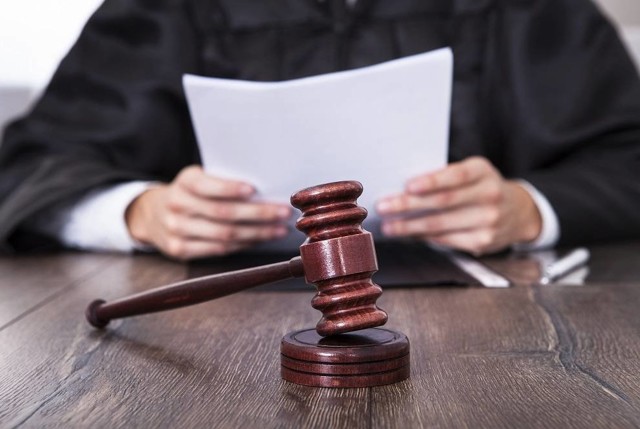

The upbringing of children is the same as that of both parents; therefore, the father and the mother of the child are obliged to guarantee the maintenance of their children, but in the event of divorce, there is a severe failure to pay maintenance; it is either in omission or in actions such as concealment of income; and penalties of this kind are punishable by criminal penalties (article 157 of the Criminal Code of the Russian Federation).
Wicked evasion of maintenance payments
Today, severe evasion of alimony is a ground for a person who does not make mandatory payments to be held accountable.
In this sense, the word "hot" shows that it is a persistent, systematic and deliberate failure to fulfil responsibilities.
In order for the offence to become malicious, it was necessary for it to be given a judgement, which was subsequently not executed by the defendant.
How to prove non-payment of maintenance
In order to be held criminally responsible, it is considered that two mandatory conditions are to be met simultaneously:
- The offence is considered to be malicious.
- Payments must be awarded by the court.
The plaintiff must file an application with the court in order to collect the money for his child ' s maintenance; if the claims are satisfied, the plaintiff will receive an executive notice which may be sent to the executive service.
The bailiffs shall, within the ten days prescribed by law, carry out the execution of the court ' s decision.
Evidence of such a violation is the lack of income to the front account of the recipient of maintenance payments.
The minimum period of non-payment in which it is possible to prosecute is four months.
Responsibility for malicious evasion of maintenance
Liability is determined by a specific type of offence; for example, the articles of the Criminal Code become relevant in the event of a persistent failure to pay their obligations; criminal liability is possible when the non-payer has already been held administratively liable but has not paid.
Criminal liability for non-payment of maintenance
Under article 157 of the Criminal Code, there are the following possible penalties:
- Mandatory work (maximum 12 months);
- Corrections (maximum 12 months);
- Arrest (maximum 3 months);
- Imprisonment (maximum 12 months).
Virtually all of these penalties are accompanied by a ban on holding positions of authority, and a person will also be restricted in movement, both within and outside Russia.
Administrative liability for non-payment of maintenance
Article for evasion of payment, by which offenders are brought to justice before the courts of 17.14 of the Code of Criminal Procedure of the Russian Federation.
If the violation is committed, the non-payer may be punished with a fine of 1,000 to 2,500 roubles and may be further seized of the bank accounts and the debtor ' s property.
Also, a person in violation of the law is often prohibited from travelling abroad in the immigration service.

Punishment for malicious evasion of maintenance
The penalty for this violation may be administrative or criminal; the procedure of prosecution is costly in terms of time; before a decision on punishment is taken, the court will determine the reasons for the debt and whether there are grounds for the lawful involvement of the debtor.
If the grounds for ignoring alimony payments are not respected, a warning is issued first by the bailiff, and then it comes to actual punishment.
For the first time, a non-payer may be fined (under article 17.14 of the Code) a fine of up to 2,500 roubles.
If a person continues to make no further payments, this will be sufficient grounds for the recognition of a citizen of the Russian Federation as a malicious non-payer; then, under article 157 of the Criminal Code, a person may be deprived of his or her liberty (maximum period of one year).
In some cases, offenders are able to escape with less recourse to forced labour or arrest.
Loss of parental rights
The deprivation of parental rights in the face of a serious failure to pay maintenance is possible, and the basis for this argument is article 69 of the UK, which states that if the duties prescribed by law are malfeasance, a judicial decision may be taken to deprive him of his rights.
In order to do so, the second parent responsible for raising the children must file a complaint with the court, together with a package of documentation; it is recommended that additional grounds be obtained for the punishment; this may be based on the testimony of witnesses confirming that the child is not involved in the life of the child.
A statement of the amount of maintenance payments should also be attached.
If you have any questions, consult a lawyer to ask your question in the form below, in the window of an online consultant on the right at the bottom of the screen, or call the numbers (round the clock and without the weekend):7:: Average:..................................................................................................................................3,29(5) Loading..........................................
Evil Avoidance of Maintenance: How can a non-payer be held criminally liable?
The Family Code of the Russian Federation establishes various types of maintenance obligations whose non-compliance would entail the application of certain liability measures.
The absence of maintenance payments in favour of the consignee for a period of time may be characterized as a malicious evasion of obligations, thereby criminalizing the debtor for failure to pay maintenance.
We will analyse the key legal features of the implementation of these sanctions measures in this article.

What does it mean to avoid paying maintenance?
In accordance with Russian law, malicious evasion of maintenance should be understood to mean deliberate and long-term neglect of the requirements for the maintenance of a minor child, a disabled son (daughters) over 18 years of age, as well as parents who are unable to work.
According to the regulatory explanations, the debt is due to the debtor's wilful omission, and failure to pay maintenance may be characterized as a malicious evasion of obligations only if the court so decides; in fact, evasion is a failure to comply with the requirements of a formal judicial document.
According to the criteria set out in paragraph 11 of the "Methodological recommendations on the procedure for the recovery of maintenance" (FSP Order No. 01-16 of 19 June 2012), a person whose actions are aimed at:
- Deliberate non-compliance with financial support obligations for a child in need (unable to work parent);
- Concealing information and making known false information about official and unofficial material income;
- Secrecy of potentially retrievable property;
- Change of employment and address of residence without being notified by the executive;
- Changes in personal data without alerting the bailiffs.
The recognition of a person as a "hot non-payer" is preceded by repeated warnings to bailiffs that their financial obligations must be fulfilled.
This is a situation where the administrative sanctions imposed on the debtor to collect debts are not effective and the amount of funds continues to accumulate.
How much time is that?
4 months of systematic non-payment of maintenance — a period of time after which the debtor's failure to act can be recognized as a malicious evasion.
According to the law, the term "grudging" does not refer to payments made under a voluntary maintenance agreement, which may only be applied to obligations declared in court decisions.
Is there a criminal liability for non-payment?
The Criminal Code of the Russian Federation defines non-payment of maintenance as a minor offence, while criminal liability for non-payment of maintenance is an extreme measure of forcing a person to collect material obligations towards a child or a disabled parent.
Article 157 of the Criminal Code regulates the procedure for recruiting a hard-core non-payer, as well as the list of sanctions for the offender.
When's it coming?
Criminal proceedings against a hard-boiler are initiated following the application of administrative and civil sanctions, which have proved ineffective, as well as a two-fold warning by the SPF staff of the initiation of criminal proceedings.
What kind of punishment is there for a vicious non-payer?
Under article 157 of the Criminal Code, a malicious non-paymenter of maintenance may be involved in:
- Correctional labour for up to 12 months;
- Forced labour during a similar period;
- Arrest for 3 years;
- A term of up to 12 months ' imprisonment.
Could anyone be put in jail for not paying maintenance?
Criminal law regulates the possibility of punitive measures for the offender, in particular deprivation of liberty.
At the same time, the regulations emphasize that, as a minor offence, non-payment of maintenance becomes a criminal proceeding only when the previous administrative sanctions have not prompted a person to fulfil his or her material obligations.
If there is a small child, the situation is somewhat different: according to the legal explanations, the existence of a dependent child of a minor who is held liable for failure to pay maintenance may serve as a mitigating ground for avoiding the most severe penalties — arrest and deprivation of liberty.
In addition, the perpetrator ' s disability, the sudden loss of employment (not attributable to the person) and the sudden appearance of other disabled dependants among the family members can also mitigate the sanctions measures.
How much do they put away?
Under article 157 of the Criminal Code, the maximum term of capital punishment for failure to pay alimony is one year.
How to attract?
In accordance with article 50 of the Law on Enforcement Proceedings (FZ No. 229-FZ of 2 October 2007), the party concerned with the material recovery is entitled to file any application aimed at the fulfilment of maintenance obligations.
In order to bring criminal proceedings against a hard-core debtor, the recipient (applicant) must apply to the Federal Service of Conservatorys (FSP).
At the same time, it is important to have documentary evidence of the absence of regular payments (bank account statements) as well as evidence that the process is being carried out intentionally by the respondent (communications, audio, video recordings of conversations, etc.).
If the applicant ' s written application is not considered after the 30-day deadline, the applicant is entitled to submit a formal complaint to the management of the SPF unit against the bailiff ' s failure to act.
How can we draw up an application for prosecution?
The application for criminal proceedings relating to non-payment of maintenance shall be made in accordance with the following structure.
- The document's hat is a reference to the FSP unit's details: the name of the organization, the FIO of the manager. A little bit below is the data of the payee: FIO, address of residence, contact details.
- The main part of the application requires the criminal liability of the debtor of maintenance, as well as a list of the legislative grounds for the institution of criminal proceedings, which should include the length of the delay in payment, the amount of the arrears, the circumstances indicating the "grust" of the offender's actions.
- The letter ends with the applicant ' s signature and the date.
Where do I download the sample?
- The model application for criminal liability for non-payment of alimony is located here: https://yadi.sk/i/-KZqqAzGvO2Yw

- In this way, malicious evasion of maintenance is a ground for criminal proceedings against a person, preceded by administrative sanctions and repeated warnings from the executive.
The fact of "wrongness" is confirmed by a number of circumstances: the concealment of the income, change of place of residence, dismissal from work and other factors; depending on the size and duration of the debt, as well as other elements proving the guilt of the malicious non-payer, the offender may be engaged in punitive, forced labour, arrest and even imprisonment.
What does it mean to avoid paying maintenance?

Which means "wrong evasive"
Deliberate non-payment of maintenance over a long period of time is considered by law to be malicious evasion, in which case the payer knowingly conceals his income, his place of residence or reduces the amount of the payment on his own, despite repeated warnings by the executive.
What acts, then, must be committed in order to fall into the category of malicious non-payers?
- Frequent change of employer or place of residence without notification to the executive;
- Change of personal data (e.g. family name) without notice of the bailiff;
- 4 months ' non-payment of funds;
- The accumulation of an impressive amount (more than 10,000 roubles) of debt;
- Deliberate concealment of real income;
- Search;
- Ignoring the Executive Service ' s demands for maintenance.
However, even the obvious acts of evasion must be defined as a crime: the right to bring the perpetrator before the courts in order to bring the perpetrators to justice has been given by law:
- The recipient of the funds;
- Judicial Guards Service (JFSP).
Who's not to blame?
Judicial practice shows that the delay in payment is not always due to malicious intent; many factors can prevent the payer from fulfilling its obligations on time:
- Dismissal of a citizen at the initiative of the employer;
- Delayed payment of wages;
- Severe illness or disability leading to incapacity for work;
- Retirement;
- The accumulation of third-party debt (e.g., accounting staff).
The list of factors that have affected the late payment of the benefit can be continued, and it is important to prove to the court that the citizen has accumulated a debt for the maintenance of the child not of his or her own free will.
Who is at risk of punishment
The Family Code identifies several categories of citizens who are required to provide material support to their relatives, but there are only two risks in paying for malicious evasion:
- Parents who maintain minor children as well as children with disabilities who are unable to work;
- Adult children providing disabled parents.
Types of liability
The law provides for three types of penalties for non-compliance with maintenance obligations:
- Civil;
- Administrative;
- Criminal.
Administrative responsibility
The administrative penalty is ordered by the bailiffs, and what is the risk to the debtor?
- Penalties;
- The seizure of bank accounts and deposits;
- Sale of property;
- Prohibition of crossing the border of the Russian Federation;
- Debarment from driving.
An extreme administrative measure, to which only the court is entitled, is the deprivation of parental rights by an unfavorable parent, which does not exempt a citizen from further maintenance of the child until his or her majority.
Maintenances would also have to be paid, while the outstanding debt would be repaid.
But taking part in the further education of his offspring, preventing him from going abroad, and prohibiting other people from adopting a former parent will no longer be able to do so.
Persons who owe less than 10,000 roubles and who have dependent children who are unable to work, as well as those with disabilities, are not subject to administrative liability; the deprivation of their driver ' s license does not endanger citizens for whom driving is the only source of income.
Criminal responsibility
The reference to non-payment of maintenance as a crime should alert parents who do not have good faith, and when criminal law comes into play, the perpetrators are not joking.
What is the risk of criminal liability for malicious evasion of maintenance payments?
- Correctional work for up to 12 months threatens citizens who do not have formal employment; convicted persons find work at their place of residence and some of the wages are paid in arrears.
- Forced labour for up to 12 months is performed by the perpetrator at a special correctional centre; the convicted person is taken to such a facility and his earnings are withheld.
- Arrest for three months.
- Imprisonment (maximum 1 year).
Conduct of accountability
It is a long and difficult procedure for the debtor to pay the debts; if the recipient has not been able to influence the debtor on his or her own, the executing service will have to be engaged.
The bailiffs have certain powers to influence an unfriendly citizen.
However, if the debtor was found in an executive search, it would not be possible to hold him accountable until the location had been established.
Procedure on the part of the recipient:
- Submission of an application for prosecution of a non-payer to the territorial body of the Russian SVF.
- Study of the performance of the executive service in this area (the application shall be submitted 1 month after the request).
- Write a complaint against the bailiff if he fails to act to bring the debtor to justice.
Judicial officer ' s work
After receiving an application from the recipient of maintenance, the staff of the Russian SVF will have to carry out a series of activities to work with the debtor; first, the citizen is invited to a conversation to determine the reasons for the non-payment of funds.
The proceedings are conducted with the participation of all parties to the proceedings; each party has the right to state its position and provide evidence of its own right; however, the defendant should not ignore the visit to the courtroom in order to delay the proceedings; and if the failure to appear is not well founded, the debtor will be forced to do so.
The Criminal Code of the Russian Federation gives the parties the right to settle the dispute peacefully before the judge goes to the deliberative room, and if the debtor undertakes to pay the debts and pay the damages, the criminal hearing shall be closed, and the payer shall not be considered to have been tried.
The law provides for several types of liability for non-payment of maintenance, and several penalties may be imposed on one debtor at the same time; for example, the payment of damages for late payments and forced labour.
How to Mitigate Punishment
The court always puts the best interests of the child above all else, so it is difficult to avoid liability if a person is found to be a malicious non-payer; in order to mitigate the court ' s decision, the minimum time required is:
- Pay the amount of the debt;
- To file an action for a reduction in the amount of payments;
- Provide disability appointment documents;
- Report the loss of work.
Court proceedings of this kind are usually lengthy, and maintenance debt continues to accumulate, and there are methods to prove its innocence to the court, and at the very least, to mitigate the penalty, but the most effective option is to pay the debt in full and avoid similar violations in the future.
Wicked evasion of maintenance payments
An evil evasion of the obligation to pay maintenance isCriminal offencefor which the guilty party must bearCriminal punishment.
Many are mistaken, considering that only failure to fulfil maintenance obligations for children under 18 years of age is criminalized.
The mother and/or father may be held criminally liable for acts committed before or after the child ' s majority, and children who are able to work may also be held criminally liable if they refuse to assist their parents who are unable to work and need it.
VictimsChildren under 18 years of age, children who have reached the age of 18 years (disabled persons) and parents who have not reached the age of 18 years are recognized as such.
Which means a vicious evasion of maintenance payments.
Refusal to pay maintenance for children or parents who are unable to work will be consideredNasty.if that'sDeliberatesystematic avoidance of paymentA court order has been issued for the maintenance of needy family members.
Systematicity should be understood here to mean the prolonged failure to perform the duty after repeated notice by the debtor.the debtor ' s strong opposition to comply Court decisionrelating to the recovery of maintenance or active acts indicating such conduct:
- Deliberate failure to fulfil the maintenance obligations imposed by the court decision for a long time;
- Concealment of property that may be sanctioned;
- The change of place of residence or place of work without informing the bailiff;
- Refusal to hire;
- Providing inaccurate information, including information on income and property;
- Non-payment of funds after warning by bailiffs of the likelihood of criminal liability.
It is necessary to decide whether an evasion would be malicious in each particular case, taking into account the length and grounds for the failure of the perpetrator to pay maintenance, as well as other important circumstances of the case.
Judicial practiceto........................................................Aggressives are equated with caseswhere the debtor has for a long time failed, without objective cause, to assist children or parents who are unable to work, and it is clear from his behaviour that he does not wish or intend to comply with the judgement of the court.
Loss of parental rights for non-payment of maintenance
The best way to solve the problem of evasion of alimony isLoss of parental rights by the non-payer69, art. 70, art. 71, of the Family Code of the Russian Federation.
The deprivation of parental rights is accompanied by the deprivation of all the rights of the parent in connection with the existing relationship with the child, including the right to receive maintenance from the child thereafter, butThat doesn't mean the parent's obligation to support the child is lost..
A person deprived of parental rights loses the right to social benefits and benefits due to citizens with children.
In case of deprivationParental rights of mother and/or fatherThey also lose their rights.:
- To see the child;
- To participate directly in education and education;
- To protect the interests of the child;
- To prohibit children from leaving the Russian Federation;
- To consent to the child ' s transaction;
- To declare the restriction or deprivation of the child ' s own control over his or her income;
- To consent to emancipation;
- To consent to the adoption of a child;
- Views on the change of surname, first name, patronymic;
- To inherit a child by law.
Conditions necessary for deprivation of liberty:
- Random evasion of maintenance payments,
- Refusal to participate in the child ' s upbringing
Loss of parental rightsis the best solution to the problem, which very often works in practice, but even if it does not help, it will at least protect the child in the future, when he or she becomes an adult, from paying alimony to his or her elderly parent.
Punishment for malicious evasion of maintenance under the Criminal Code
Evil evasion of maintenance for children or parents who are unable to workis a criminal offenceSo the non-payer should be criminally liable for it.
In order to be criminally responsible for the crime in question, it is necessary to haveTwo conditions:
- Wicked evasion of maintenance payments,
- The alimony itself, which must be paid by order of the court.
The following penalties are prescribed for the persistent failure of parents and children to perform maintenance duties: correctional labour (up to 1 year of age), forced labour (up to 1 year of age), arrest (up to 3 months) and deprivation of liberty (up to 1 year of age, art. 157 of the Criminal Code).
Commencement of criminal proceedingspossible with sufficient evidenceIn the absence of evidence of a person ' s direct intent to commit an offence, the court ' s decision may be reviewed.
The guilty party ' s failure to pay maintenance includes many successive steps; the sooner a person fulfils the obligation to pay for the maintenance of the needy members of his family, the less action will have to be taken by the bailiff.
The first step isWarning by the bailiff to the non-payerThe law does not specify the number of such written warnings, so one will suffice.
If no payment has been made after the said warning,The debtor is held administratively liable.
If he continues to evade this, the bailiff prepares a report on the detection of evidence of a crime.
If the perpetrator is sentenced to a non-custodial penalty, the bailiff shall register the debtor.
And if, even after sentencing, the guilty person evades the duty,A bailiff may request that the previously selected sentence be commuted to deprivation of liberty.
If, after serving the sentence, the debtor again evades the performance of his or her duties, the bailiff shall draw up a report of the commission of a new offence.
Liability arises only when the debt has arisenby the payer ' s faultIf such a debt is the result of a set of circumstances independent of the behaviour of the payer, it shall not be subject to criminal liability.
For example, failure to meet maintenance obligations due to late payment of wages is not accepted by the court for malicious evasion.
It was very important to verify the debtor ' s ability to work and to pay.A detailed study of the situation was needed.
There are cases in which a person does not pay alimony in accordance with the established procedure, but performs some part of the obligation and is not permanent, which is not criminalized.
So,Avoiding criminal responsibilityFor a crime, it's quite simple: the debtorPays alimony, but a very small amount..
The court applies article 157 of the Criminal Code of the Russian Federation when there are no other legal possibilities to influence the situation, since when a sentence is served (when wages are paid at the place of deprivation of liberty), the share payments can be very severely reduced.
Bringing the debtor to justice is a last resort.She needs to be approached when there are no more solutions, because the situation may have a negative impact on a child ' s future career.
In particular, when assigned to the security forces, the public service is requiredVerification of the applicant ' s relatives.
A parent ' s criminal record may result in the inability to hire a public entity or a prestigious company.
Judicial practice
Judicial practice has established that the methods of malicious evasion are in the form of evasion of maintenance, despite the existence of a warning, evasion of employment and other actions.
If a person who is obliged to pay alimony fails to perform his duty in good faith, the Federal Service of Court Guards, one of whose functions is to ensure citizens ' rights to maintenance, applies to non-payers for the performance of this function.Enforcement measures.
Criminal casemay be initiatedOn the basis of:
- Report of the bailiff on the discovery of evidence of a crime,
- Claims filed by the claimant,
- Reports from other sources of a crime that has already occurred or is only being prepared.
Such cases are within the jurisdiction of the justices of the peaceAs a rule, most criminal proceedings are instituted on the basis of the ex-husband ' s claims against the former husband.
As far as judicial practice is concerned, there is little evidence that adult children do not pay the maintenance of support parents who are unable to work.
Example
The defendant, a non-working father of three minor children, was obliged by a court order by a justice of the peace to pay monthly alimony in favour of their mother (the victim) amounting to 1/3 of his child maintenance income.
The bailiff initiated execution proceedings, and the father of the children repeatedly received warnings under painting that a violent evasion of maintenance was a crime and was criminalized.
However, the defendant did not accept any attempt to find employment, nor did he pay alimony for six months after the trial, did not give gifts to the children, did not buy things for them, did not take part in the upbringing at all, and the total amount of the maintenance debt was more than 370,000 roubles.
The prosecution submitted written evidence (a court order, an order to pay maintenance, a warning of responsibility, etc.) plus the father was registered with a drug doctor, charged with an administrative offence, and proved to be of a negative nature in places of deprivation of liberty.
The father ' s actions had been found by the court to be a serious evasion of maintenance obligations and had been sentenced to nine months ' punitive deduction of earnings.
Conclusion
In our daily lives, the problem of avoiding the payment of maintenance by parents, or even children, is becoming more and more widespread. The duty of parents to support their children in need and the duty of working-age children to maintain parents who are unable to work, who also need help,provided for by lawOur country.
Derogation from this duty is a punishable actIf the offence is committed by a parent who has refused to support his or her children or by a capable child who does not wish to assist the parents who are unable to work, the perpetrator may be held liable for criminal punishment.
In the event that the parent maliciously avoids the maintenance of the child, liability is provided for by depriving the parent of his or her parental rights..
Wicked evasion of maintenance, which threatens and charges for non-payment of maintenance?
Maintenance obligations are an instrument for protecting the interests of the child whose parents have decided to break up.
A parent who leaves his family is obliged to take measures to maintain the means of support for the child, but a parent who lives alone does not want to support the child, and does not want to support him, and few of those who pay the dowers are aware of the consequences.
Criminal responsibility
Article 157 of the Criminal Code of the Russian Federation, which defines the composition of the violation as "a cruel evasion of the payment of child's wages", provides for criminal liability for refusal to perform the property obligation in question.
The sign of "grudgingness" implies that the parent intentionally and systematically does not contribute to the maintenance of the child; for such failure to do so, the behaviour of the person must indicate that he or she is unwilling to provide material assistance to the abandoned family.
Proceedings under article 157 of the Criminal Code are conducted by investigators from the bailiff ' s office; they also have the right to initiate criminal proceedings under the said article by receiving the necessary information on the elements of the offence from the bailiff conducting the enforcement proceedings for the enforcement of maintenance.
What is considered a vicious evasive act?
The courts most often recognize the following characteristics (both one and more):
- The payee moved to a new place of residence without indicating the address;
- The parent hides the place of work and the income earned;
- Maintenance is not paid for a long period (more than 4 months);
- A person is officially considered unemployed but does not seek employment;
- Other circumstances of a similar nature.
The Code ' s article is worded so that criminal liability applies only to persons against whom alimony has been ordered by a judicial authority, but if the spouses have reached an agreement on alimony, its breach of criminal liability will not entail and will only give the recipient parent the right to apply to the court.
What kind of punishment can a malicious non-payer face?
In the past, the liability measures provided for in the Code have been mild - only punitive or compulsory work - but the amended version of article 157 of the Criminal Code is currently in force and the non-payer is at risk of imposing one of the following penalties:
- Up to one year of correctional labour;
- The same period of forced labour;
- Up to three months of arrest;
- Up to one year ' s imprisonment.
Another very unpleasant consequence of criminal proceedings for alimony for an unfair payer would be a criminal record, which would lead to the imposition of a number of restrictions on a person, such as a ban on holding certain positions or the difficulty of finding employment in a number of both commercial and public organizations; moreover, the fact that such proceedings were instituted might be a prerequisite for the deprivation of parental rights by the former spouse.
- The surviving spouse filed an application with the court to recover the alimony; if the decision was positive, an executive note was issued, which was sent to the bailiffs.
- After 10 days from its receipt, the bailiffs initiate execution proceedings and take steps to obtain funds from the debtor.
- If the debtor fails to comply with the requirements and has the above characteristics, he or she may be held liable under the Criminal Code, provided that it is proved that the evasion is malicious, for which the perpetrator transmits information about the non-payer to the person conducting the initial inquiry;
- The initial inquiry officer of the ROSP shall institute criminal proceedings and, in the event of a confirmation of an evasion, shall investigate it and submit it to the justice of the peace;
- The justice of the peace shall hear the case and issue the relevant judicial act; the proceedings in respect of maintenance cases in criminal proceedings may not be terminated after conciliation.
Note: If the non-payer is accused of another or more offences at the same time, the cases may be merged into a single proceeding.
If you need to obtain alimony payments from the debtor or prosecute him, ICPI's experienced "Plan of Law" lawyers are always prepared to provide comprehensive legal assistance under the "Alements? - Elementary!" programme. Professionalism and efficiency are the key to your success. Call +7 (495) 722-99-33.







